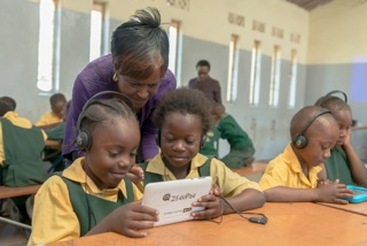 Sadie Ellner
Sadie Ellner D.C. has long been ahead of the game, with a history of prioritizing early childhood education. Fight For Children’s Sadie Ellner, a former early childhood teacher, shares with us why early childhood classrooms are uniquely important and just as rigorous as any other grade level. She also lets us know what Fight For Children, a nonprofit organization that provides funding and programming for the education of low-income D.C. children, is doing to support and develop early childhood teachers and school leaders.



 RSS Feed
RSS Feed